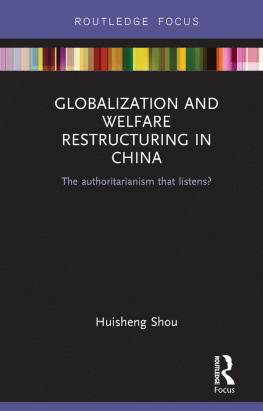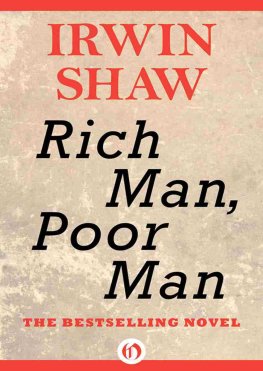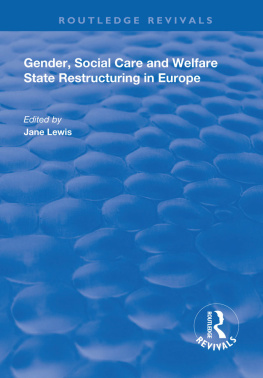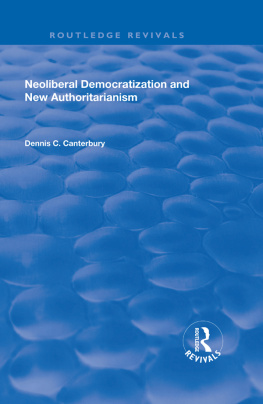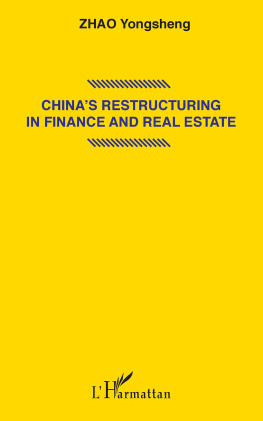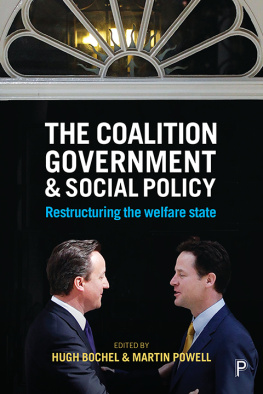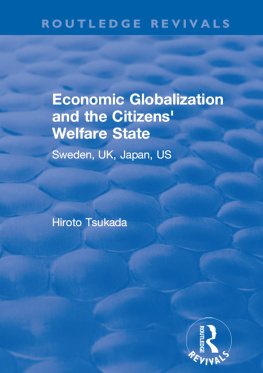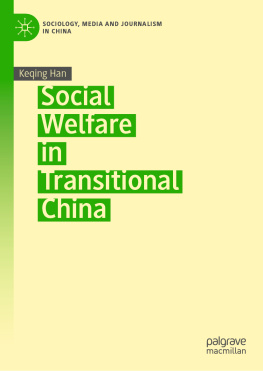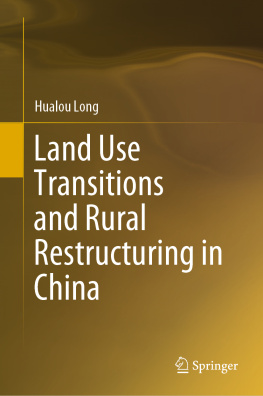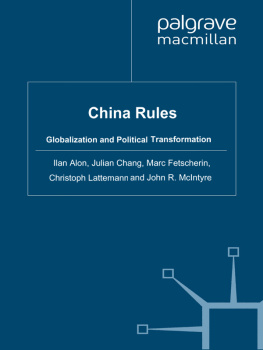Globalization and Welfare Restructuring in China
In the past few decades, the change in Chinas welfare system has been characterised by a balanced distribution of benefits across social sectors and the institutionalization of welfare redistribution. This process has occurred without significant political change that would empower politically disadvantaged groups such as the urban and rural poor. This book questions what has motivated the regime to redistribute welfare benefits through an institutionalized manner whilst its political structure remains largely unchanged.
By situating China within the broader context of East Asia and against the backdrop of globalization since the 1980s, this book examines the institutional origin and development of Chinas new welfare system. Through doing this, it provides an understanding of the nature of the Chinese state in dealing with its economy and society in a context of global economic integration. A globallocal dynamics framework highlights the importance of the interactive relationship between Chinas integration into the world economy and its unique geopolitical constraints, which together induce the regime to listen to its subjects and follow a move to the middle in welfare restructuring.
Offering a novel explanation of the welfare-globalization relations in a non-democratic setting, this book will be of interest to students and scholars of social policy, international political economy, and Chinese politics.
Huisheng Shou is a senior research fellow at the National Strategy Institute at Tsinghua University, China. His research focuses on comparative and international political economy, international development, and social policies in developing countries.
Routledge Contemporary China Series
For a full list of titles in this series, please visit www.routledge.com
155 Television Regulation and Media Policy in China
Yik Chan Chin
156 Space, Politics, and Cultural Representation in Modern China
Cartographies of Revolution
Enhua Zhang
157 The Occupy Movement in Hong Kong
Sustaining Decentralized Protest
Yongshun Cai
158 The Chinese Family Today
Edited by Xu Anqi, John DeFrain, and Liu Wenrong
159 Television Drama in Contemporary China
Political, social and cultural phenomena
Shenshen Cai
160 Intangible Cultural Heritage in Contemporary China
The participation of local communities
Edited by Kuah Khun Eng and Liu Zhaohui
161 Intellectual Discourse in Reform Era China
The Debate on the Spirit of the Humanities in the 1990s
Giorgio Strafella
162 Globalization and Welfare Restructuring in China
The authoritarianism that listens?
Huisheng Shou
First published 2017
by Routledge
2 Park Square, Milton Park, Abingdon, Oxon OX14 4RN
and by Routledge
711 Third Avenue, New York, NY 10017
Routledge is an imprint of the Taylor & Francis Group, an informa business
2017 Huisheng Shou
The right of Huisheng Shou to be identified as author of this work has been asserted by him in accordance with sections 77 and 78 of the Copyright, Designs and Patents Act 1988.
All rights reserved. No part of this book may be reprinted or reproduced or utilised in any form or by any electronic, mechanical, or other means, now known or hereafter invented, including photocopying and recording, or in any information storage or retrieval system, without permission in writing from the publishers.
Trademark notice: Product or corporate names may be trademarks or registered trademarks, and are used only for identification and explanation without intent to infringe.
British Library Cataloguing in Publication Data
A catalogue record for this book is available from the British Library
Library of Congress Cataloging-in-Publication Data
A catalog record for this book has been requested
ISBN: 978-1-138-93389-7 (hbk)
ISBN: 978-1-315-67833-7 (ebk)
Typeset in Times New Roman
by Apex CoVantage, LLC
The time was around the early 1980s. As a young boy, I began to develop some ability to observe my family in a relatively complex way. My two brothers and my sister were all at an important stage. They were either already out of high school or nearly so. All of them needed a job. Or were about to. That, in my childhood memory, was a difficult time for my parents, one a physical education teacher at an elementary school and one a wonderful baker in a local bakery, two of the hardest-working individuals I ever knew.
What has since been sticking in my memory was that many strangers were invited to our house for dinner, more often than I ever remembered. Strong liquor and nice food were served. And my parents, two humble individuals that barely could feed their four kids with their pitiful salaries, were busy moving between the kitchen and the dinner table, from which my siblings stayed away and quiet.
Only years later was I able to put everything together for a clear picture. My oldest brother was out of high school and looking for a job. My second-oldest brother was about to graduate, and my parents wanted him to join the military, which would guarantee a decent and stable job and was difficult to get for most families. Meanwhile, the elementary school, which provided my father a stable job and free housing for decades and allowed me to spend my childhood comfortingly within its enclosed campus walls, no longer offered solutions for employees children as had been the case before. Those guests, presumably, would offer help.
It was very quick, at least my memory tells me, before I saw my parents hair turning gray. Alas! They used to be so young and so happy, as I remember! It was from that moment I began to wonder about the world beyond my toys and school homework. It was from that moment I began to realize that individuals like my parents could be as vulnerable as a leaf in a stormy night.
What brought about such turbulence to my family? What was happening outside the tiny world we once peacefully lived in? What could be the best way to deal with the change these individuals must face? Looking back, I realize that the curiosity growing out of my memory about my parents during that period had set the path for my academic quest. I chose political science as my major even though I had no clue at the time what the subject was about and I picked public policies in developing countries as my research subject and globalization as my theoretical framework.
This is a book about Chinas welfare change. But it is much more than that. It is about the dynamics that have brought China into where it is today, the dynamics that profoundly affected my family, as well as millions of others, not just in China but almost everywhere on this planet, for better or for worse. That mysterious force sticking in my childhood memory no longer seems as frightening as I perceived as a boy. Yet it remains curious and fascinating. This is a book that I hope will shed some new light on our understanding of that force so that we, and our future generations, can better handle it. Even though uncertainty is the defining characteristic of our time and will remain so for the future, we at least can make our lives less anxious and disturbing than my parents experienced in their time. It is for this concern that I dedicate this book to those individuals who suffered or still are suffering from vulnerability.

